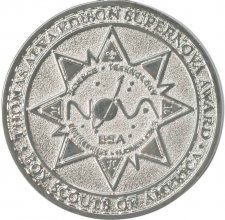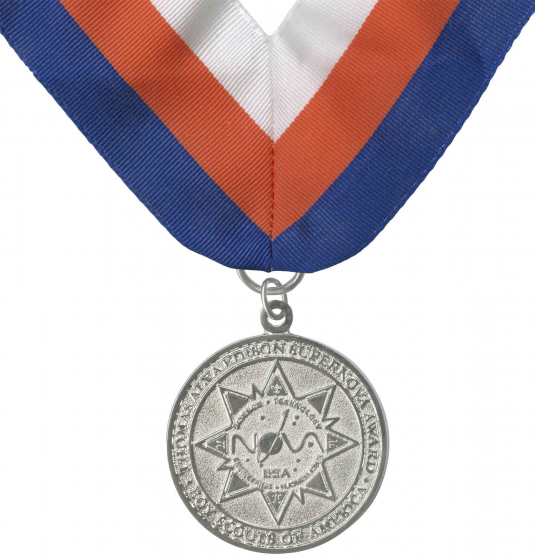Thomas Alva Edison Supernova Award


Thomas Alva Edison Supernova Award
For Scouts BSA
If you thrive on challenge, then earning the Supernova award will be right up your alley. To be eligible, you must be a First Class Scout or higher. As a prerequisite, you must first earn any three of the four Nova awards for Scouts BSA. With your parent's and unit leader's help, you must select a council-approved mentor who is a registered Scouter. You may NOT choose your parent or your unit leader (unless the mentor is working with more than one youth).
A Note to the Mentor
The Scouts BSA Supernova awards recognize superior achievement by a Scout in the fields of science, technology, engineering, and mathematics (STEM). All experiments or projects should be conducted using the highest level of safety protocol and always under the supervision of a qualified, responsible adult. The Scout should always have a buddy when meeting with his counselor or mentor.
Resources
Requirements
A youth must be a registered Scouts BSA member, age 14 or older, and at least First Class rank to earn this award. This award can be earned only after first obtaining the Dr. Bernard Harris Supernova Award.
- Animal Science
- Archaeology
- Architecture
- Astronomy
- Automotive Maintenance
- Aviation
- Bird Study
- Chemistry
- Composite Materials
- Dentistry
- Digital Technology
- Drafting
- Electricity
- Electronics
- Energy
- Engineering
- Environmental Science
- Farm Mechanics
- Fish and Wildlife Management
- Forestry
- Game Design
- Gardening
- Geocaching
- Geology
- Health Care Professions
- Insect Study
- Inventing
- Mammal Study
- Mining in Society
- Nature
- Nuclear Science
- Oceanography
- Plant Science
- Programming
- Pulp and Paper
- Radio
- Reptile and Amphibian Study
- Robotics
- Scuba Diving
- Signs, Signals, and Codes
- Soil and Water Conservation
- Space Exploration
- Surveying
- Sustainability
- Veterinary Medicine
- Weather
- Welding

